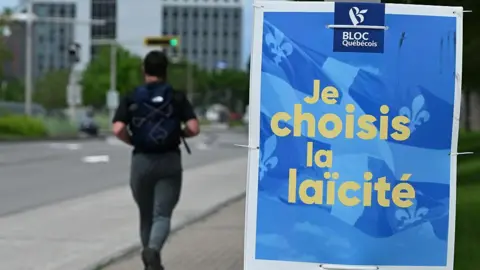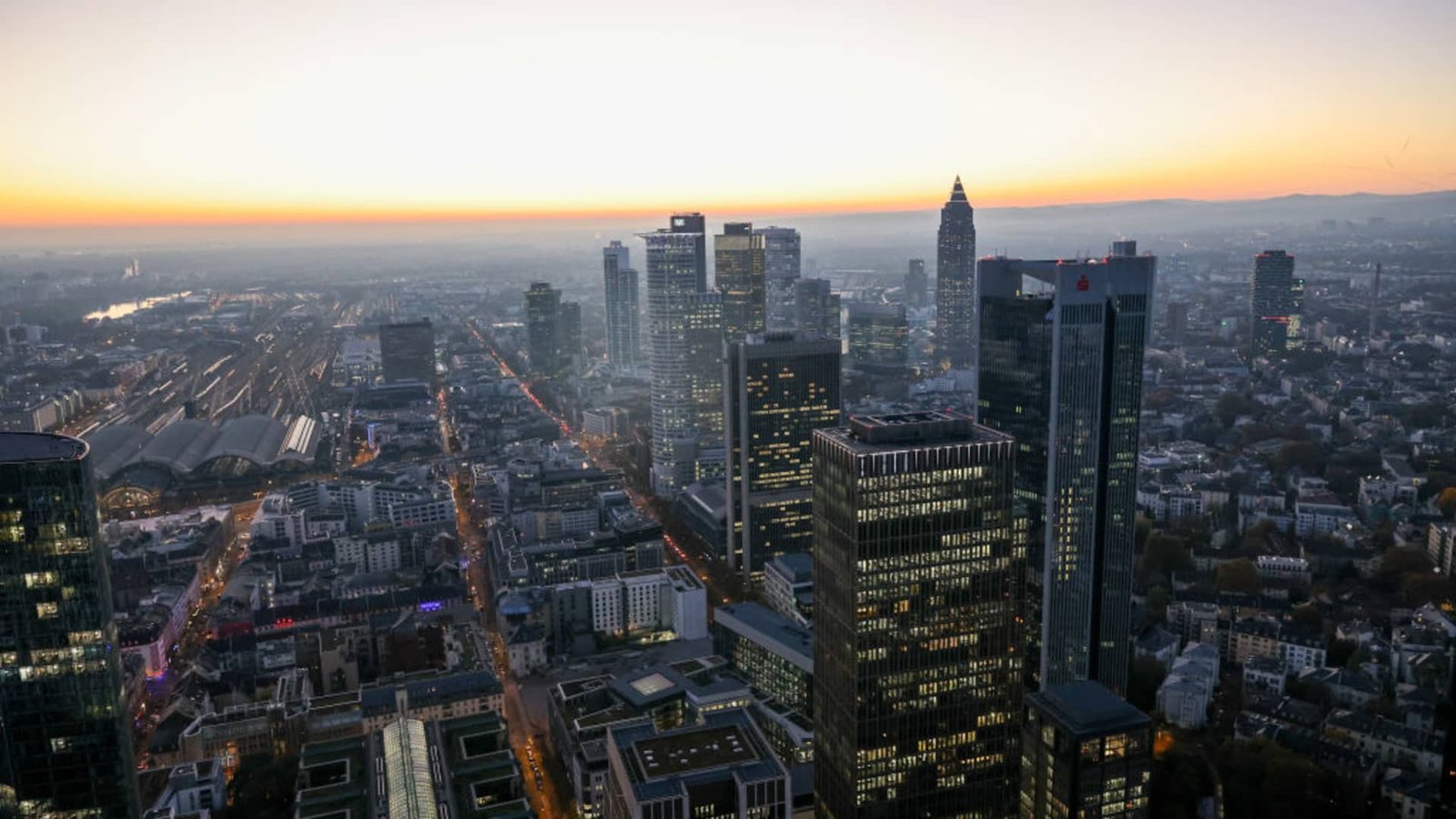
Quebec is moving to expand secularism laws, limiting public prayer

 Bloomberg via Getty Images
Bloomberg via Getty ImagesThe Canadian province of Quebec plans to impose restrictions on public prayers and limit exclusive offerings of religion-based menus, such as kosher and halal meals, in public institutions.
The latest efforts to strengthen state secularism, dubbed “Secularism 2.0,” are part of a new bill introduced Thursday by the governing Coalition Avignon Quebec (CAQ), expanding a 2019 religious symbols law that has sparked heated debate across the country.
The original law prohibits judges, police officers, teachers and civil servants from wearing symbols such as kippahs, turbans or hijabs while on the job.
The Supreme Court of Canada will hear a legal challenge to that law early next year.
Jean-Francois Roberge, the minister responsible for secularism, told a press conference in French on Thursday that the bill was “part of an approach that respects individual as well as collective rights”.
The measures proposed in Bill 9 would be:
- Extend the ban on employees wearing religious symbols at subsidized daycares
- Prohibit “collective religious practices” such as praying in public spaces such as parks without prior permission from municipalities
- Ban students and staff from wearing face coverings in daycare all the way through post-secondary education
Roberge said the restrictions on public prayer are in response to recent protests in the province, where pro-Palestinian protests have drawn controversy over groups praying.
“It is shocking that people obstruct traffic, take over public space without a permit, without warning and then turn our streets, our parks, our public squares into places of worship,” he said.
The decision to strengthen the law has already faced criticism from the opposition Québécois, which earlier this week accused the CAQ of creating divisions in an effort to shore up support ahead of next year’s provincial election.
The National Council of Canadian Muslims also criticized the bill, accusing the CAQ of “doubling down on identity politics and division in a desperate attempt to regain public trust.”
Since Bill 21 was passed six years ago, the issue of secularism has continued to heat up in Quebec.
Last year, 11 teachers at a Montreal elementary school — mostly of North African descent — were fired in a government report that said they created a toxic environment for students and staff and largely avoided subjects like science and sex education.
Quebec Premier Francois Legault said teachers tried to introduce “Islamist” beliefs and vowed to strengthen secularization measures in schools.
In August, Committee appointed by Govt It released a report with recommendations including banning religious symbols for daycare workers and phasing out public funding for private religious schools.
And last month, the Legault government passed a law extending secularism rules to staff interacting with students in public elementary and high schools and prohibiting students from wearing face coverings.

 NurPhoto via Getty Images
NurPhoto via Getty ImagesWhat is Quebec’s secularism law?
Bill 21 prohibits public officials in positions of authority – such as judges, police officers, teachers and civil servants – from wearing religious symbols such as kippahs, turbans or hijabs while on the job.
Also public services must be provided and received with open face.
For Bill 21, the Quebec government invoked the “never mind clause” – a part of the Canadian constitution that allows the government to override the “fundamental freedoms” of religion, expression and association, as well as the right to life, liberty and security of the person, and freedom from discrimination.
This essentially removes an opt-out that prevents courts from striking down laws on constitutional grounds.
Bill 21 does not mention any specific religion and would include symbols worn by persons of any religion, including Christians, and affirm the province’s religious neutrality.
But critics say it mainly targets religious minorities, particularly Muslim women.
The law has faced several legal challenges in Quebec. The Supreme Court of Canada has now agreed to take up the case, which will depend on both the law itself and the application of the notwithstanding clause.
Debates over secularism — broadly, the principle that religion and government institutions should be separate — have played a significant role in the province’s public discourse for nearly two decades.
Known as laïcité in the majority French-speaking province, this has been an important value in Quebec society since the 1960s when the strong influence of the Catholic Church in the province began to decline.
A September poll by polling firm Léger, commissioned by media outlets Le Journal de Montreal and TVA, indicated that 68% of respondents considered secularism to be an important value.
Legislation similar to Bill 21 exists in various countries in the EU.
France banned veils, crosses and other religious symbols in schools in 2004 and face coverings in public in 2010.













Post Comment